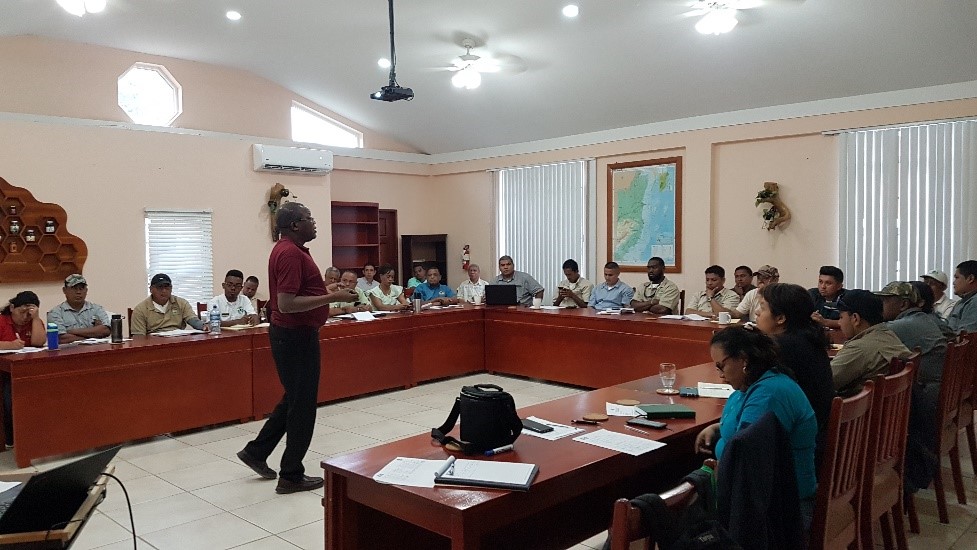Six countries will participate in the program that impulse bioeconomic models to create better opportunities in rural territories

San José, January 21 of 2019 (IICA) – The Inter-American Institute for Cooperation on Agriculture (IICA) has begun the implementation of a project to create economic opportunities through the adoption of bioeconomic models in the Belize, Jamaica, Saint Lucia, Trinidad and Tobago, Guyana and Bahamas.
The purpose of this project is to strengthen the resilience of the economies through the adoption of innovative technologies and sustainable organic waste management systems in the Caribbean region.
IICA is delivering a two-day workshop on composting during January and February as part of the capacity building component of the project, involving stakeholders from the public and private sectors, academia, research and industry, etc.
Throughout this project, IICA is seeking for the engagement of private and public sectors to develop partnerships that will support the strengthening of the capacities of technicians and producers in the Caribbean in order to promote the proper use of organic waste based on a bioeconomy model as well as to enhance the sustainability of the project.
Preventing waste and making better use of waste as a resource will eventually bring significant economic as well as health and environmental benefits for the Caribbean.
This project, presented and approved at the 81st meeting of the Council for Trade and Economic Development (COTED) on October 2019, will also create new jobs and chain interlinks with other industries can be generated.
The environmental problems caused by solid waste management also provide a space for creating opportunities with technologies that transform waste into new business models, which in turn has the potential to contribute to the improvement of soil quality, produce clean energy, increase income and production and support the accomplishment of the national and international regulations.
More information:
Abimbola Abiola, specialist in Climate Change and Natural Resourses of IICA.











